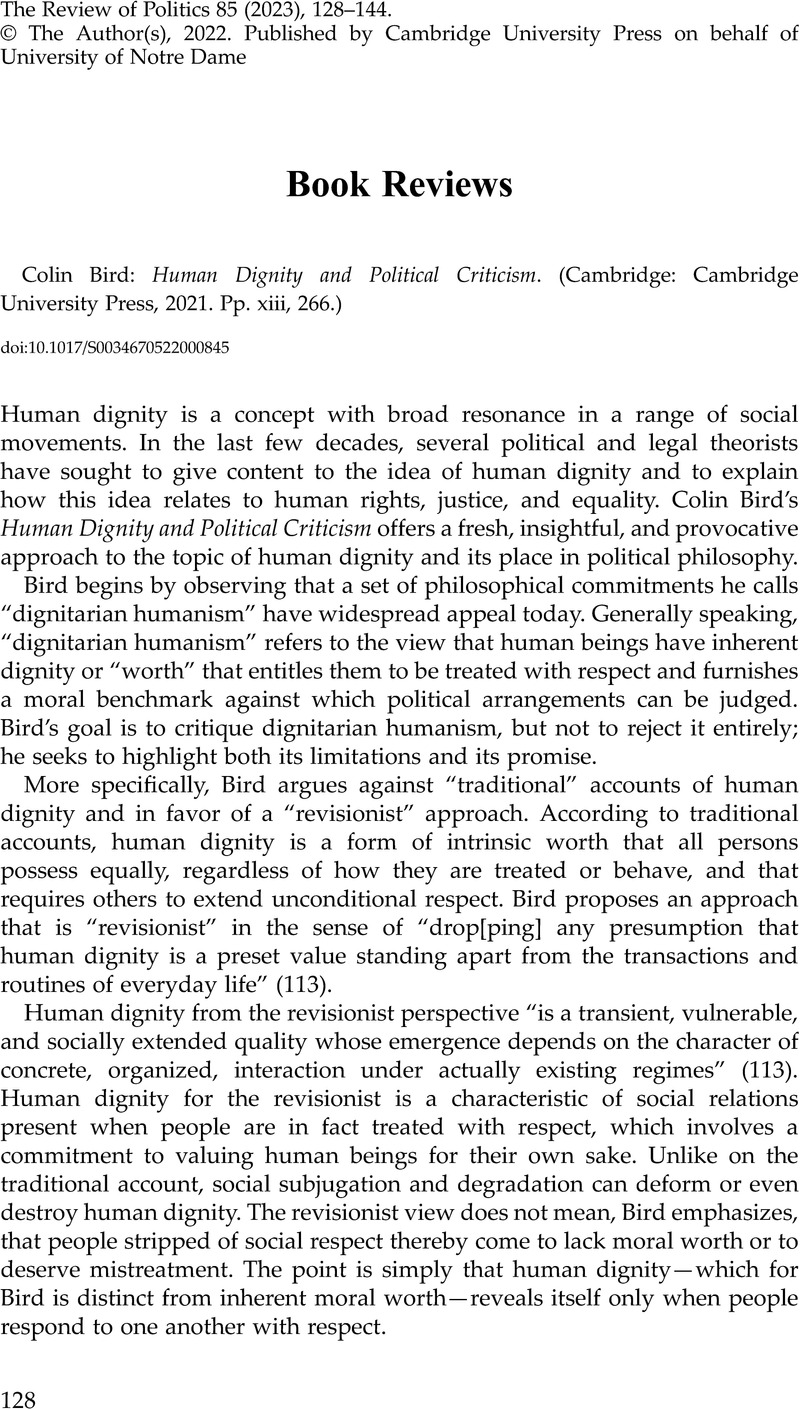No CrossRef data available.
Article contents
Colin Bird: Human Dignity and Political Criticism. (Cambridge: Cambridge University Press, 2021. Pp. xiii, 266.)
Review products
Colin Bird: Human Dignity and Political Criticism. (Cambridge: Cambridge University Press, 2021. Pp. xiii, 266.)
Published online by Cambridge University Press: 19 September 2022
Abstract
An abstract is not available for this content so a preview has been provided. Please use the Get access link above for information on how to access this content.

- Type
- Book Review
- Information
- Copyright
- Copyright © The Author(s), 2022. Published by Cambridge University Press on behalf of University of Notre Dame


